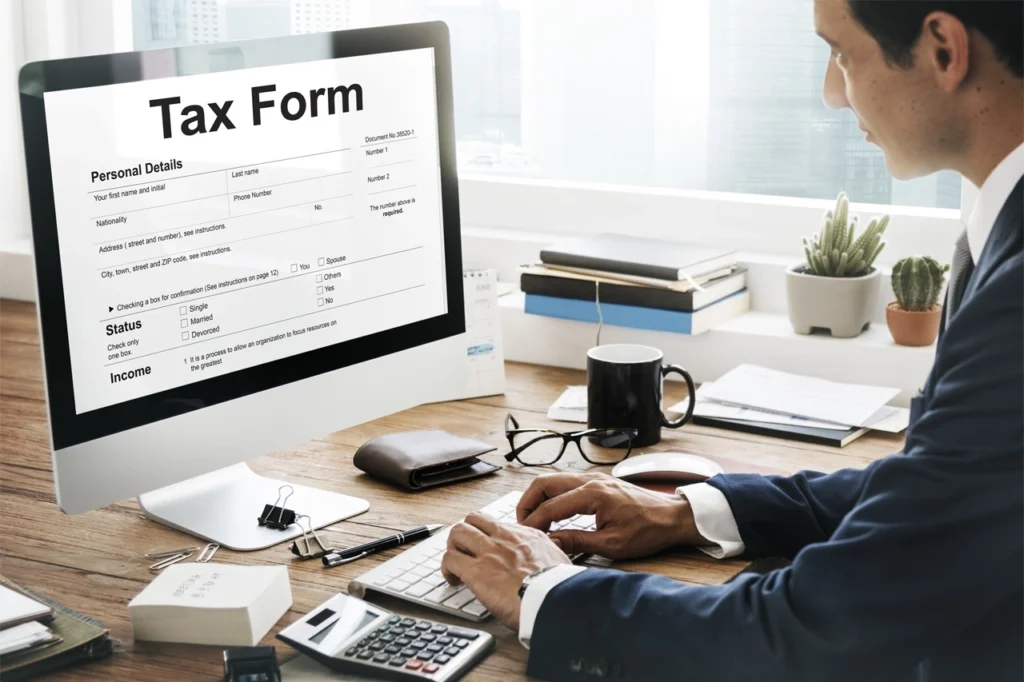How to Prepare for Tax Season: A Guide for Freelancers and Contractors

How to Prepare for Tax Season: A Guide for Freelancers and Contractors Tax season can be a stressful time, especially if you’re a freelancer or contractor managing your own finances. Without the built-in support of an employer, handling taxes requires a bit more planning and organization. Here’s a quick guide to help you prepare for tax season with confidence. 1. Organize Your Income Documents As a freelancer or contractor, you may have income from multiple clients, which means collecting various 1099 forms or other income records. Keep these organized in a dedicated folder—either physically or digitally. Make sure you have documentation of all your earnings throughout the year, even from clients who didn’t send formal tax documents. 2. Track Deductible Expenses Carefully Freelancers and contractors have unique opportunities for tax deductions. Common deductible expenses include: Home office costs (if you work from home) Supplies and equipment Professional services (like software, subscriptions, or courses) Travel and meals related to work Keep receipts and records for these expenses. A small investment in expense-tracking software can help simplify this process, ensuring you don’t miss deductions that can lower your tax bill. 3. Consider Hiring a Tax Professional Freelance taxes can be complicated, especially when dealing with self-employment tax, deductions, and quarterly payments. A tax professional can help ensure you’re taking advantage of all possible deductions and accurately filing your returns. 4. Set Aside Money for Taxes Year-Round Unlike traditional employees, freelancers and contractors don’t have taxes withheld automatically. Aim to set aside 20-30% of your income throughout the year for taxes. This way, you won’t be caught off guard by a large tax bill when filing. Conclusion The future of accounting is here, driven by AI and automation. These technologies promise greater efficiency, smarter decision-making, and more strategic roles for accountants. Embracing these changes will unlock new possibilities for accountants and businesses alike.
10 Essential Accounting Tips for Small Business Owners

Accounting is a crucial yet often overwhelming part of running a small business. Proper financial management can mean the difference between success and struggle, especially in today’s competitive market. Whether you’re a startup founder or a solo entrepreneur, these essential accounting tips can help you stay organized, avoid costly mistakes, and set your business up for sustainable growth. 1. Separate Business and Personal Finances Separating your personal and business finances is foundational to good accounting. Mixing the two can make tracking expenses and income messy, complicating tax filing and financial analysis. Set up a dedicated business bank account and credit card. This way, you’ll have a clear view of your business’s cash flow and avoid tax issues. 2. Utilize Accounting Software Invest in accounting software to streamline your financial tracking. Popular choices like QuickBooks, Xero, and FreshBooks offer features such as expense tracking, invoicing, and reporting. These tools automate many processes, reducing human error and saving time on bookkeeping tasks. Many also offer integration with bank accounts, making it easier to reconcile transactions. 3. Keep Track of All Expenses Tracking every business expense can help you take advantage of deductions and ensure accurate financial records. Use a digital tool or app to capture and categorize expenses in real-time, and keep receipts organized by attaching them to their respective transactions in your software. Keeping detailed records of your expenses will make tax season much easier. 4. Understand Basic Financial Statements Get familiar with essential financial statements like the balance sheet, income statement, and cash flow statement. These documents provide insights into your business’s health, profitability, and cash flow. Understanding them will help you make informed decisions, anticipate cash flow shortages, and plan for growth. 5. Set Aside Money for Taxes Taxes are a non-negotiable part of running a business, and failing to prepare can lead to stress and penalties. Set aside a portion of your income regularly for taxes, ideally in a separate tax account. Consider setting aside about 20-30% of your income to cover federal and state taxes, and consider paying estimated quarterly taxes to avoid penalties. 6. Outsource or Hire a Professional Accountant If managing finances becomes too complex or time-consuming, consider hiring a professional accountant. They can help with tax planning, prepare financial reports, and ensure compliance with local laws. Outsourcing can be a cost-effective solution for small businesses without the budget for a full-time accountant. 7. Know Your Tax Deductions Understanding available tax deductions is crucial to reducing your tax liability. Common deductions for small businesses include travel expenses, equipment purchases, office supplies, and rent. Be sure to document these expenses thoroughly, as they can significantly reduce your taxable income and overall tax burden. 8. Monitor Cash Flow Regularly Cash flow is the lifeblood of any business, and managing it effectively is critical to maintaining financial stability. Regularly review your cash flow statement to spot trends, identify slow-paying customers, and make adjustments as needed. Positive cash flow allows you to pay bills on time, invest in growth, and avoid debt. 9. Reconcile Bank Accounts Monthly Monthly reconciliation helps ensure that your records align with your bank’s. This step prevents discrepancies, avoids errors, and provides a clear financial picture. Most accounting software can assist with this process by connecting directly to your bank and flagging any mismatches. 10. Plan for Growth Successful businesses think long-term, so set aside time to review your finances and plan for growth. Adjust budgets, forecast revenues, and consider reinvesting profits back into the business. Financial forecasting can guide your business decisions and help you prepare for expansion opportunities. Conclusion: Good accounting practices are essential for small business success. From separating finances to using accounting software and planning for taxes, these tips will help you maintain accurate records, meet tax obligations, and focus on growing your business. Remember, consistent and organized accounting is the key to long-term financial health and success
